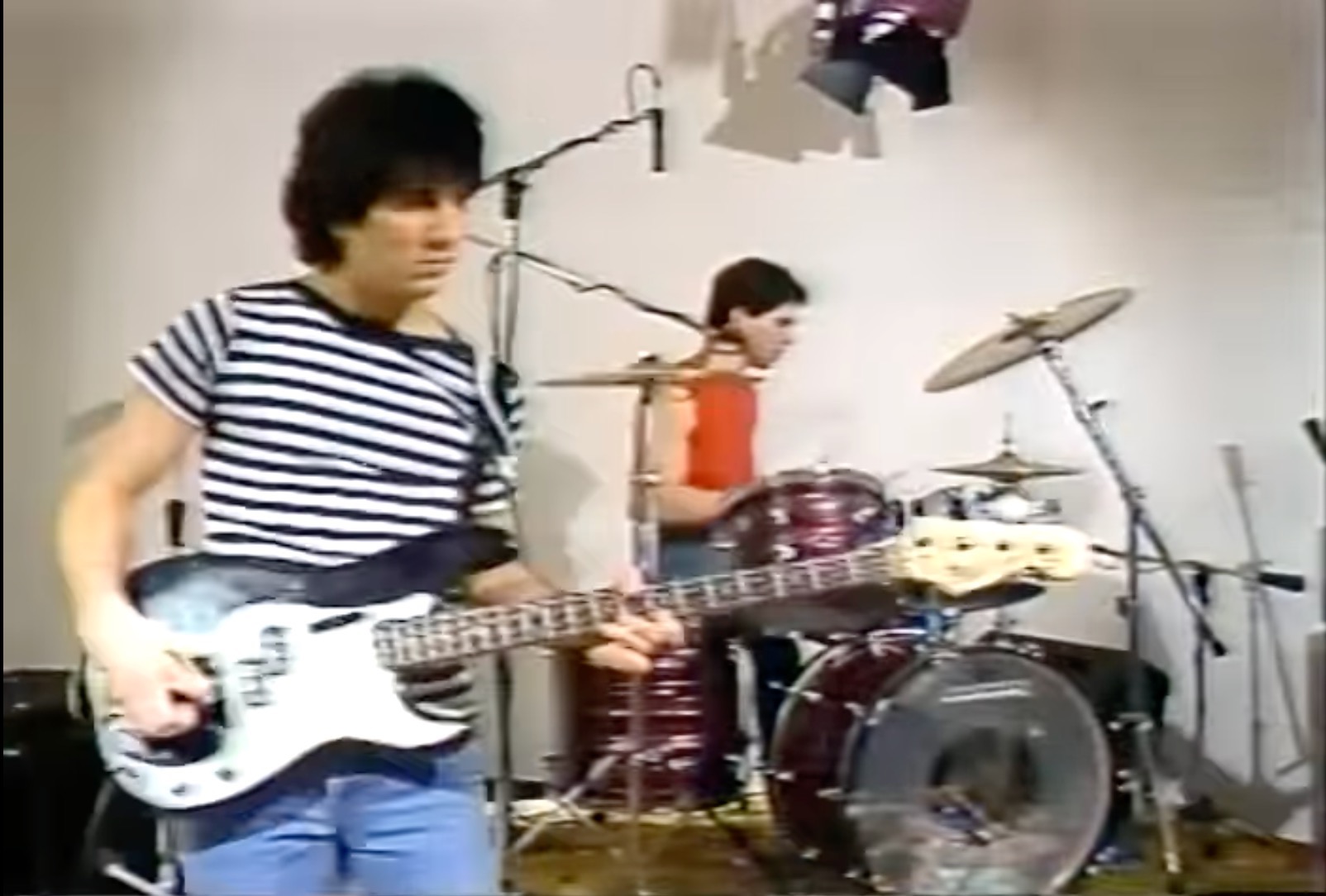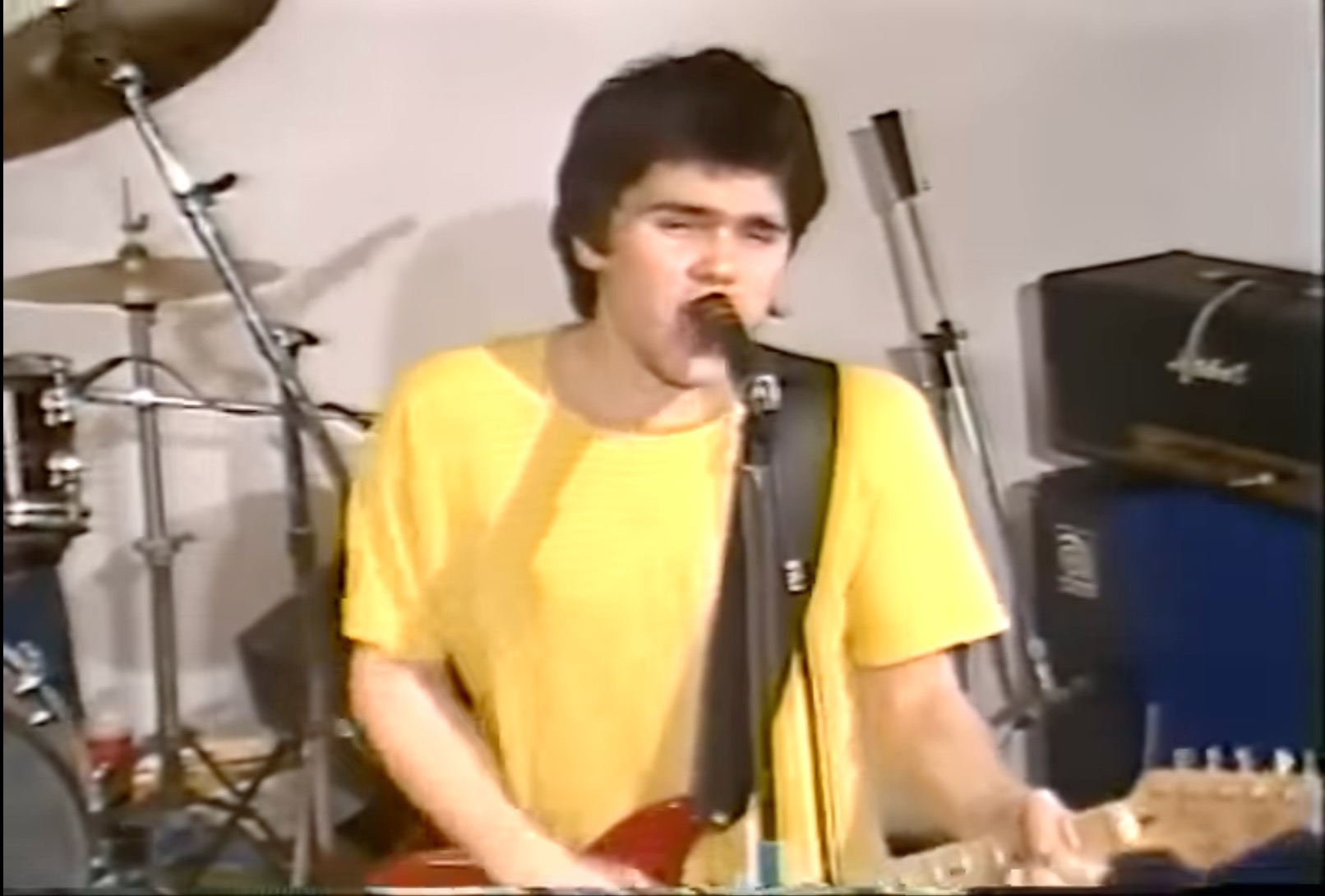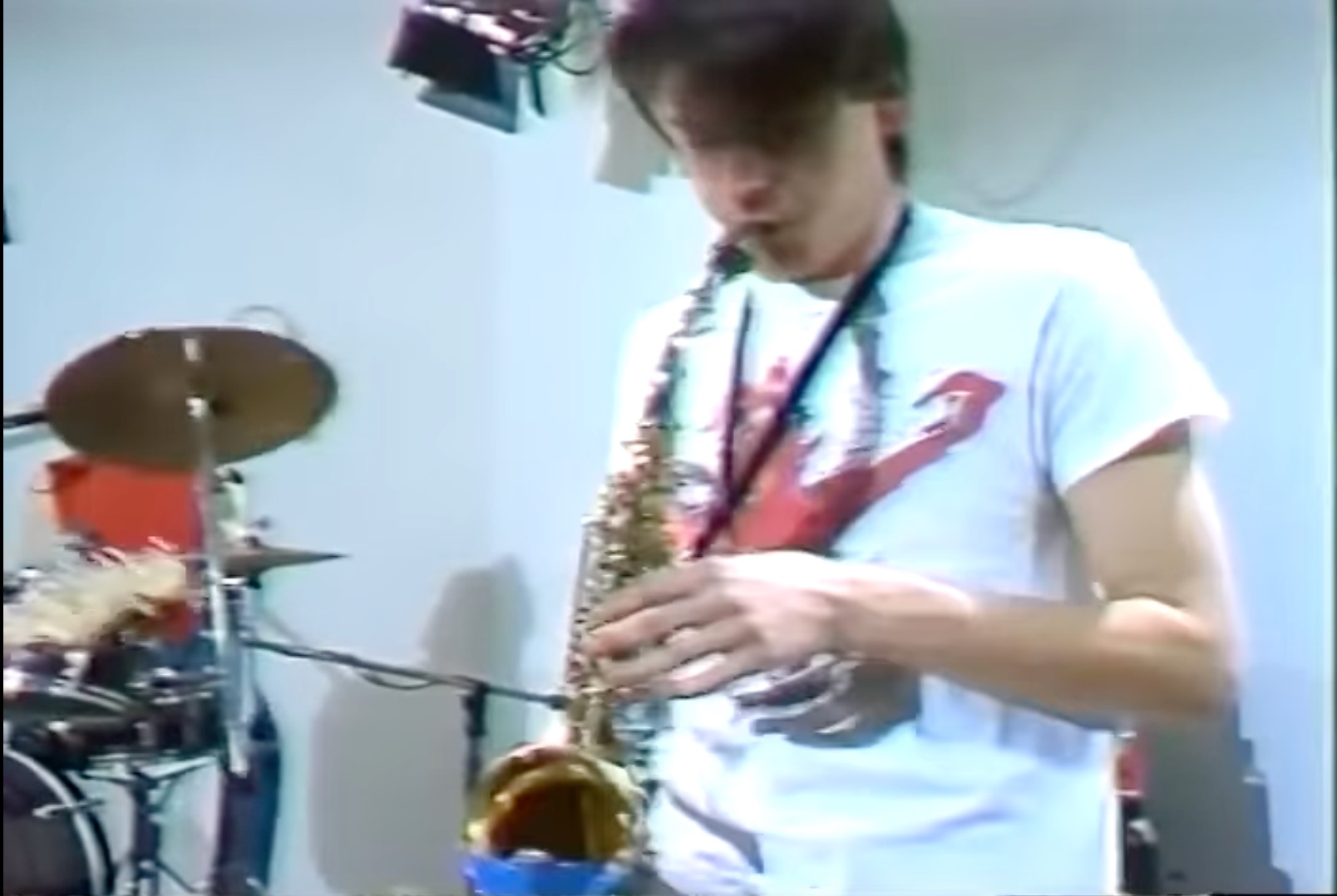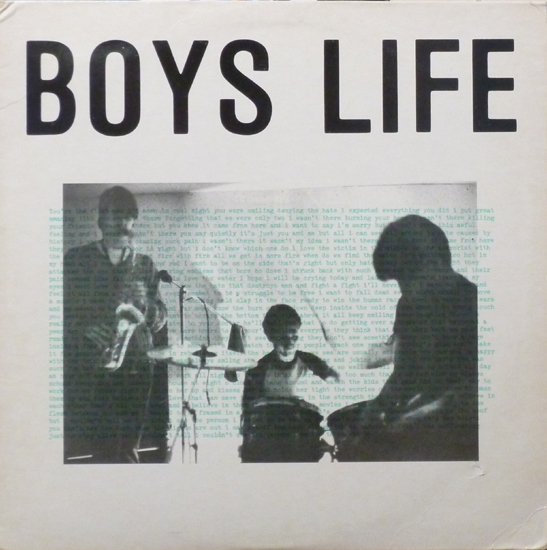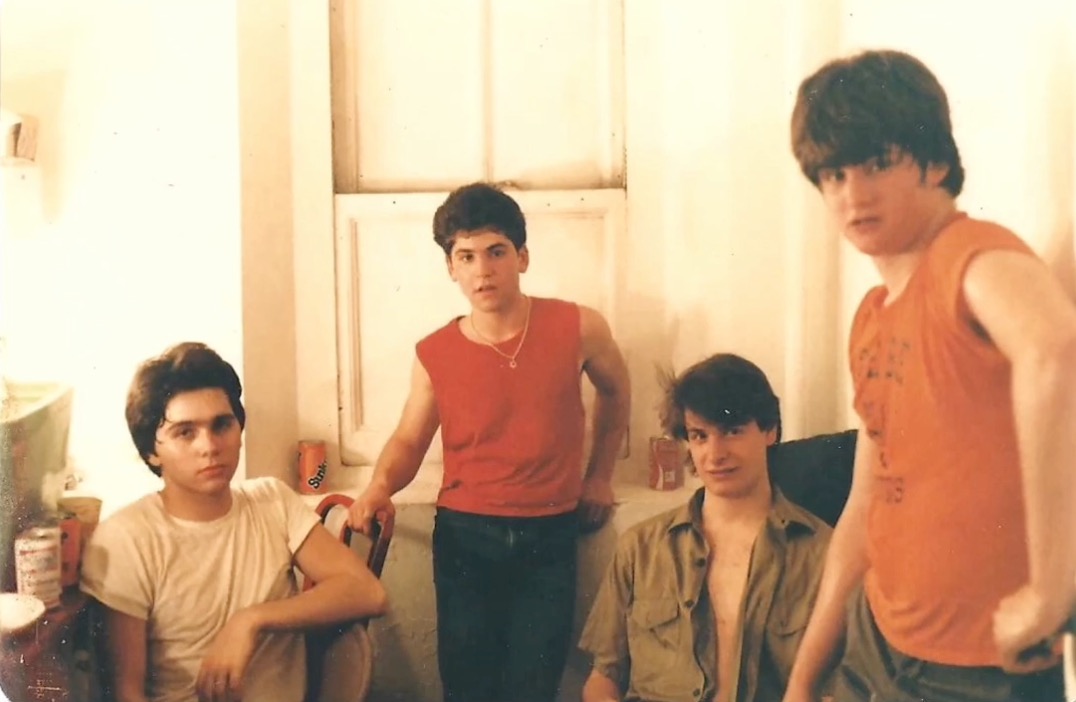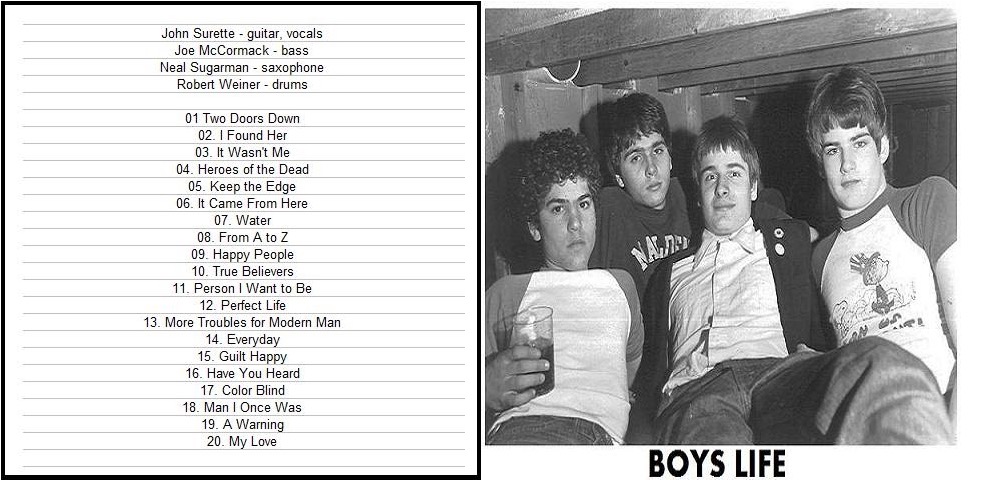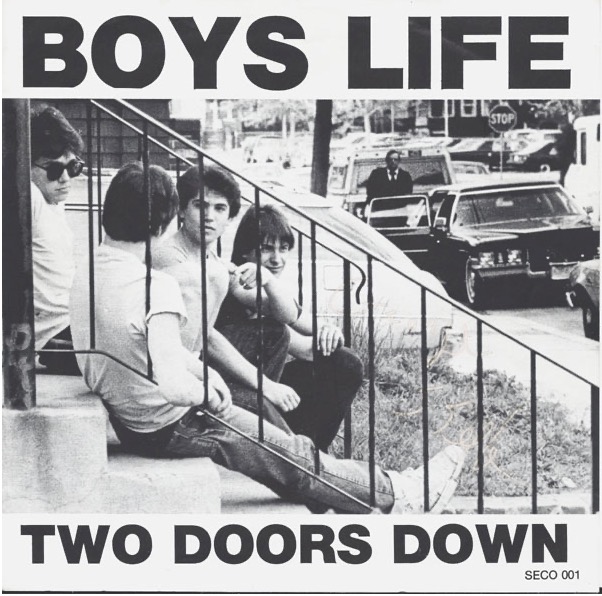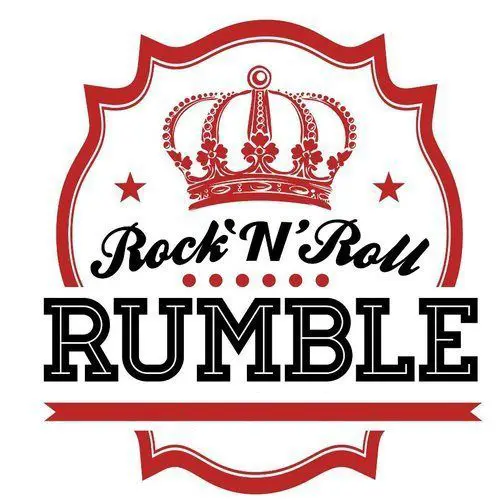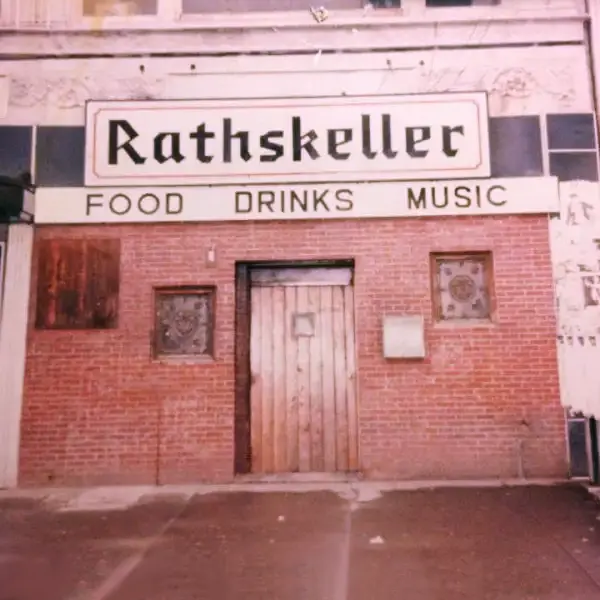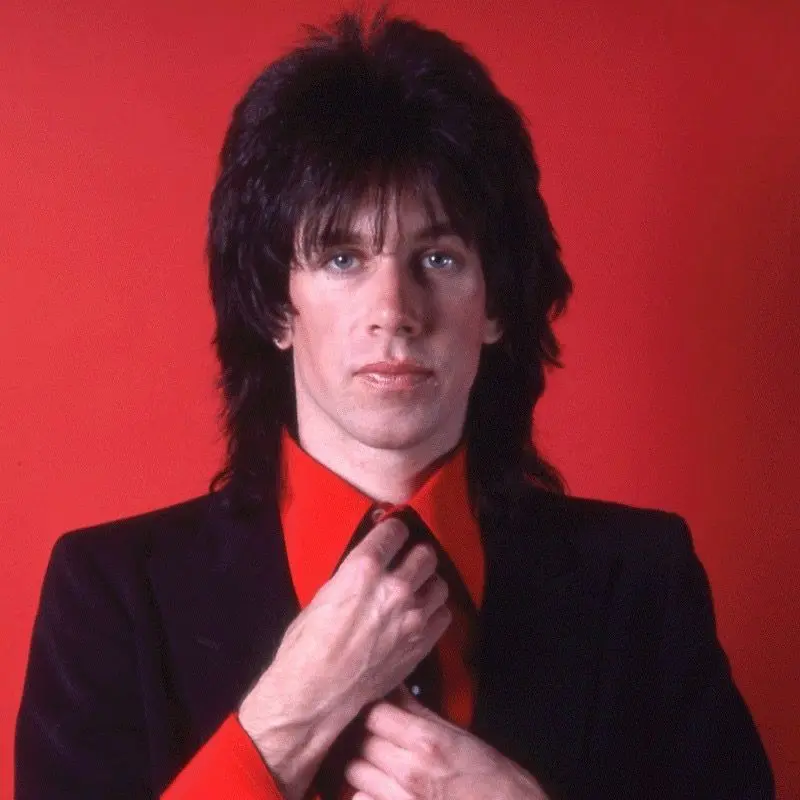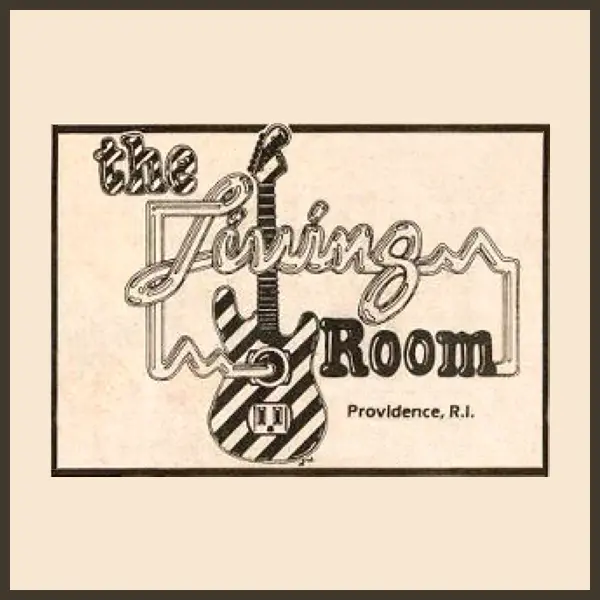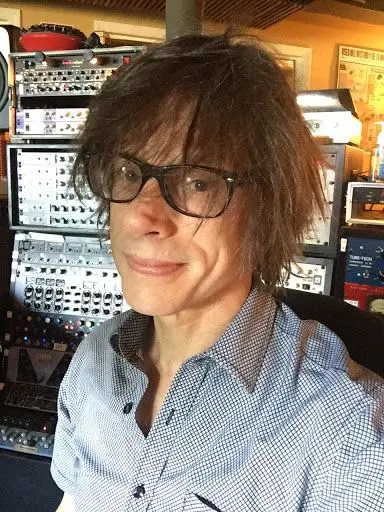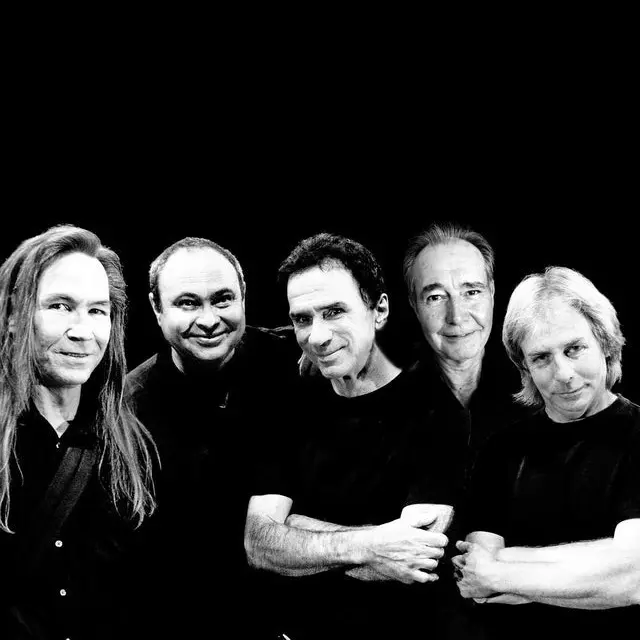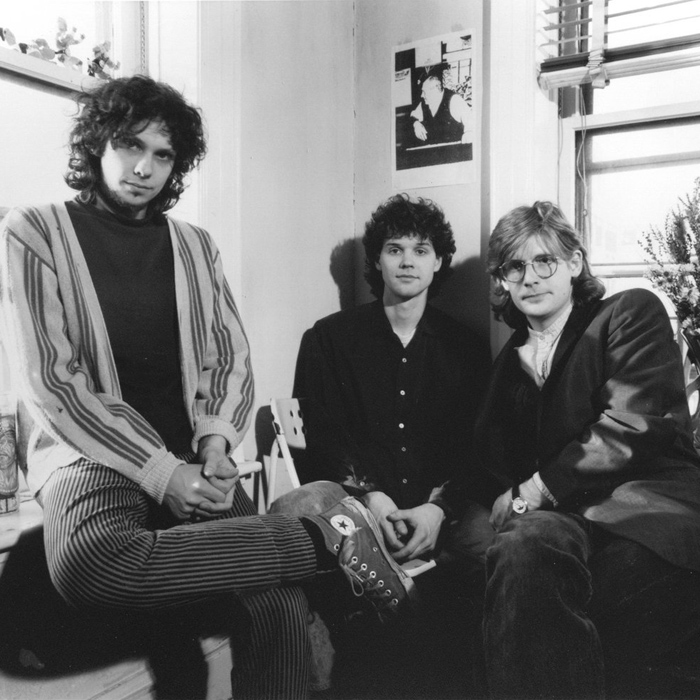Boy’s Life
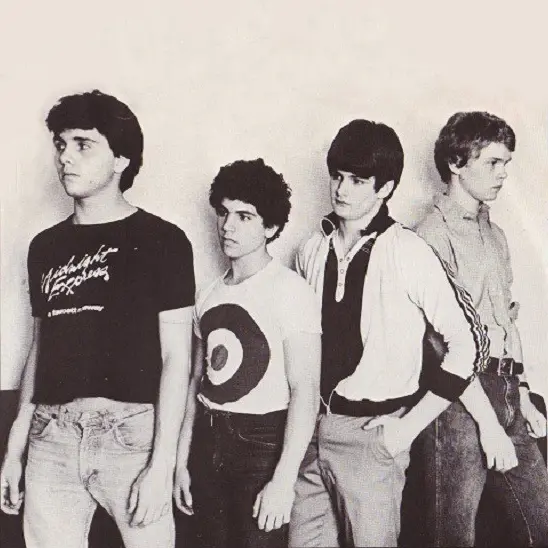
The mid-‘70s rise of punk was a slap-in-the-face reminder that rock ‘n’ roll is mostly about attitude and volume, not technical theatrics or cringe-worthy poetics, and that back-to-basics refocus produced some killer bands in the late ‘70s, including a bunch from Boston. Some achieved lasting national notoriety by touring with major acts, like The Neighborhoods. Others appeared on the national radar briefly, like Human Sexual Response. And Mission of Burma managed to become a model of post-punk creativity around the world despite recording just one EP and one LP in their heyday.
Then there were groups that had virtually no impact on the national scene but were a significant presence on the local one, like Boy’s Life. Similar to their Boston-based contemporaries Lou Miami & The Kozmetix, the band had minimal studio output – one EP and a few singles – but built an impressive fan base by gigging at popular Boston clubs and opening for some of their era’s most notable bands in the city. When they took to the stage at the WBCN Rock ‘n’ Roll Rumble in 1980, frontman John Surette made a quip that remains part of Boston-rock lore to this day: “We’re Boy’s Life and we’re here to make you feel old!”
Formation, Name, Boy’s Life vs. The Outlets
The band came together in 1979 in Malden, Massachusetts, formed by Surette (vocals, guitar, bass), Robert Weiner (drums, vocals), Chris George (bass) and Neal Sugarman (saxophone, keyboards, vocals). Cleverly, since they were all between age 16 and 18, they named themselves after the monthly magazine founded in 1911 by Somerville native George S. Barton and published by the Boys Scouts of America; during their first several months together, they wore Boy Scout uniforms on stage. Surette’s brother Dave, the former manager of a Strawberries record store, managed the group and wrote some of their lyrics.
In 1980, the band recorded two songs for the four-song EP Boys Life vs. The Outlets (“Perfect Life” and “More Trouble for Modern Man”); the other two tracks, “Knock Me Down” and a cover of The Monkees’ “You Told Me,” were by The Outlets. The songs found their way into rotation on WBCN, which led to the station inviting Boy’s Life to participate in the Rock ‘n’ Roll Rumble that year (held at The Rathskeller and won by Pastiche). Though they didn’t make it past the first round, the exposure led to regular appearances at Boston spots including Cantone’s, The Living Room in Providence and others venues on the East Coast. They opened for several major acts including The Jam, Echo & The Bunnymen and Stiff Little Fingers in Boston and New York City and for a few other local groups, most often The Neighborhoods.
Later singles, Boy’s Life EP, Disbanding
In 1981, the band recorded the single “Two Doors Down” (b/w “I Found Her”) on Seco Records, their song “It Wasn’t Me/Heroes of the Dead” appeared on the Modern Method compilation album Wicked Good Time and another, “Keep the Edge,” was included on Wicked Good Time, Vol. II. In 1982, they cut a self-titled, six-song EP at Synchro Sound in Boston, produced by The Cars’ kitman David Robinson and issued by Seco. The band held a sold-out record-release party at The Channel, WBCN named the track “From A to Z” its Local Song of the Year and a reader’s poll conducted by The Boston Phoenix resulted in the EP being voted Best of the Year in the local category.
Over the next couple of years, the group was a busy as any up-and-coming band has ever been, appearing at clubs, colleges, universities and assorted other spots each weekend and rehearsing every weekday. Following reports of tensions within the band over creative differences and the failure to land a major-label deal, Boy’s Life broke up in 1985. “We played every weekend without fail as long as we were in existence,” Surette said in 2012, calling the breakup “a plain case of ‘familiarity breeds contempt.’”
Post-split activity
Following the split, Surette joined The DeNiros (later called John Surette and The DeNiros); in 2000, they recorded an LP produced by The Neighborhoods’ frontman David Minehan. He went on to manage Jaques Underground (part of Jaques Cabaret on Broadway Street in Boston) and in 2013 he wrote and recorded the punk opera Tomorrow the World at Minehan’s Woolly Mammoth Sound in Waltham, Massachusetts.
Weiner went on to tour Europe with The Fools and George formed Drumming on Glass in 1985 before co-founding Merang (with members of The Cavedogs): in the ‘90s, he shifted his focus from bass to cello. In the mid-‘80s, Sugarman formed the New York City-based funk group Sugarman 3 with organist Adam Scone and drummer Rudy Albin. In the ‘90s, he co-formed soul band The Dap Kings and for the past 20-odd years he’s been a session player, appearing on albums by Robbie Williams, Al Green, Lily Allen, Nas, Sharon Jones and Amy Winehouse, among others.
(by D.S. Monahan)

